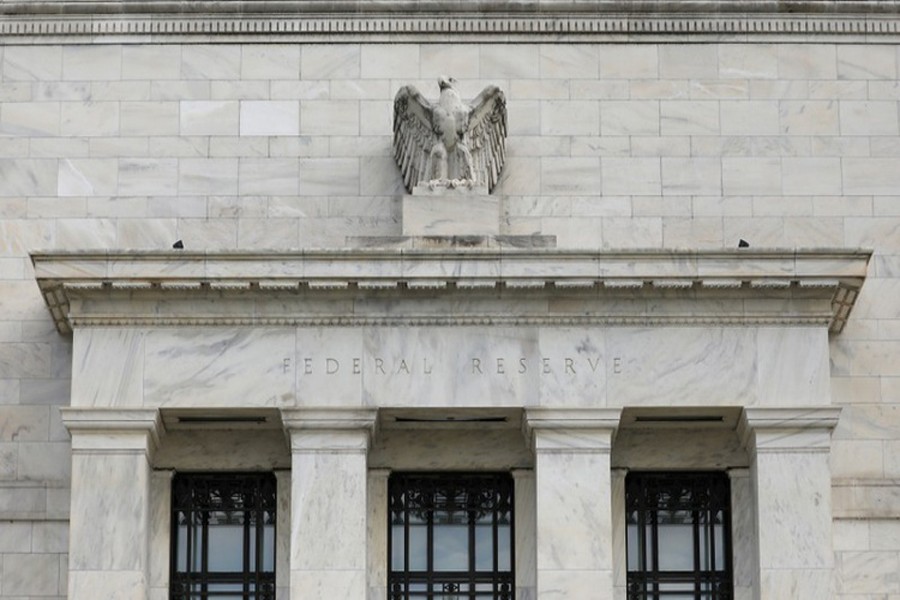Central banks may be about to face one of their biggest challenges yet: Global economic growth is slowing, but they have struggled to build up their policy arsenals since the last crisis to effectively deal with another one.
The US-China trade war, worries about Britain’s imminent departure from the European Union, a potential recession in Italy and unrest in South America all pose risks for the global economy.
While the US Federal Reserve embarked on its current tightening cycle back in December 2015, the European Central Bank, Bank of England and Bank of Japan still have interest rates at or near rock-bottom.
Policymakers want to start raising borrowing costs so they have more room to manoeuvre if there is another downturn. But they risk fanning the slowdown hundreds of economists polled by Reuters this month think is already underway.
Central banks are also facing increasing pressure from governments to keep policy loose, bringing their independence into question.
US President Donald Trump has taken a swipe at the Fed, Italy has put pressure on the ECB to extend its asset purchases, and Indian Prime Minister Narendra Modi has made it clear to the Reserve Bank of India that he wants stimulative monetary policy ahead of national elections in May.
“With the global economy likely to slow over the coming quarters, it seems more likely that central banks will continue to come under fire from populist leaders,” said Neil Shearing, group chief economist at ING.
But most central banks target inflation, not growth.
Tighter policy usually strengthens currencies while reducing consumer and business spending, which should keep inflation lower - but it also risks curtailing what is pretty scant growth in many countries.
The Bank of Japan has been targeting inflation of 2 per cent for years without success. It is not expected to start normalising its extremely loose monetary policy until 2020 or later.
ECB President Mario Draghi may also have to wait a long time before policy is tightened.
He acknowledged on Thursday that growth in the euro zone was likely to be weaker than previously expected, although the bank stuck to its guidance that it intends to raise interest rates later this year for the first time in a decade.
It is now expected to wait until the fourth quarter to raise its deposit rate, however, later than thought a month ago. Only 36 of 65 economists polled by Reuters this month were confident the ECB would be able to raise rates before the next downturn.
“The risks surrounding the euro area growth outlook have moved to the downside on account of the persistence of uncertainties,” Draghi told a news conference, citing trade and geopolitical threats, emerging market volatility and Brexit.
Britain is due to leave the European Union in a little over two months, but there is still huge uncertainty about what relationship the two sides will have come Brexit day on March 29.
Bank Rate in the UK has been at just 0.75 per cent since August, and in a Reuters poll this month expectations for a hike next quarter were pushed back to July at the earliest as the potential for a no-deal Brexit remains high.
Prime Minister Theresa May is engaged in a last-ditch bid to win support for a tweaked divorce deal after parliament this month crushed the original plan in the biggest defeat in modern British history.
Her finance minister, Philip Hammond, said the economy would suffer severe damage if the United Kingdom left the EU without a deal. That would leave little scope for the BoE to be tightening policy anytime soon.
Across the ocean, median predictions suggest the Fed will raise rates twice this year, although nearly one-third of 105 economists polled by Reuters predicted the US central bank would either hike rates only once or keep the fed funds rate unchanged at 2.25-2.50 per cent in 2019.
“US monetary policy tightening is pretty much over and the ECB seems set to miss the boat altogether in this cycle,” said Andrew Kenningham, chief euro zone economist at Capital Economics.
A further escalation in the trade war President Trump is waging on China, the world’s second-biggest economy, would likely lead to an even sharper global slowdown this year, economists said.
Under pressure from faltering domestic demand and bruising US tariffs, China’s economy cooled in the fourth quarter, reducing 2018 growth to a near three-decade low and pressuring Beijing to roll out more stimulus to avert a sharper slowdown.


